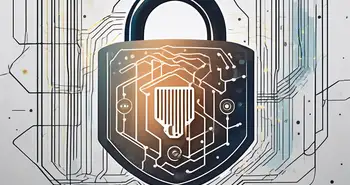The Importance of a Smart Contract Security Audit

Smart contracts are revolutionizing the way we conduct business transactions. These self-executing agreements, powered by blockchain technology, offer unparalleled security and transparency. However, the decentralized and immutable nature of smart contracts also poses unique risks. That's why a smart contract security audit is crucial to ensure the integrity and reliability of these agreements.
Understanding Smart Contracts
Before we dive into the importance of security audits, let's take a moment to understand what smart contracts are. Simply put, smart contracts are computer programs that automatically execute predefined actions when certain conditions, specified within the contract, are met. They eliminate the need for intermediaries, making transactions faster, cheaper, and more efficient.
Smart contracts operate on blockchain networks, which are decentralized and highly secure. Every transaction is recorded on the blockchain and cannot be altered or tampered with, ensuring transparency and immutability.
The Role of Smart Contracts in Blockchain
Smart contracts play a pivotal role in the functioning of blockchain technology. They enable the automation of complex business processes, such as supply chain management, financial transactions, and decentralized applications (dApps). By eliminating the need for intermediaries, smart contracts enhance efficiency and reduce costs.
For example, in supply chain management, smart contracts can be used to automatically track the movement of goods from the manufacturer to the retailer. Each time the goods change hands, the smart contract updates the information on the blockchain, providing real-time visibility and eliminating the need for manual record-keeping.
Key Features of Smart Contracts
Smart contracts come with a range of features that make them highly attractive for businesses:
- Autonomy: Once deployed, smart contracts operate autonomously without human intervention.
- Security: Smart contracts utilize strong cryptographic techniques to ensure the security of transactions.
- Trust: By operating on a transparent and decentralized blockchain network, smart contracts enhance trust among parties.
- Efficiency: Smart contracts eliminate the need for manual processing, reducing operational costs and saving time.
In addition to these features, smart contracts also offer programmability, allowing developers to create complex logic and conditions within the contract. This flexibility enables the implementation of sophisticated business rules and workflows, further enhancing the efficiency and effectiveness of transactions.
Furthermore, smart contracts can be easily audited and verified, thanks to their transparent nature. This ensures that the code within the contract is secure and free from vulnerabilities, reducing the risk of fraud or malicious activities.
The Need for Security Audits in Smart Contracts
While smart contracts offer immense potential, they are not immune to vulnerabilities and risks. The very features that make them attractive also make them a target for cybercriminals. That's why a thorough security audit is essential to identify and mitigate potential risks.
Identifying Potential Risks and Vulnerabilities
A smart contract security audit involves a comprehensive analysis of the contract's code and functionality. The goal is to identify any vulnerabilities or weaknesses that could be exploited by malicious actors. Common issues include programming errors, logic flaws, and susceptibility to attacks such as reentrancy, front-running, and denial-of-service.
During the audit process, security experts meticulously review the smart contract code, examining every line for potential vulnerabilities. They employ various techniques, such as static analysis and manual code review, to ensure a thorough assessment. By conducting a detailed audit, these risks can be identified early on and appropriate measures can be taken to strengthen the security of the smart contract.
Moreover, security audits not only focus on the code itself but also consider the overall architecture and design of the smart contract. This holistic approach helps in identifying systemic vulnerabilities that may not be apparent at first glance. By uncovering these hidden risks, organizations can proactively address them and fortify the security of their smart contracts.
Ensuring Compliance with Regulatory Standards
In addition to mitigating risks, a smart contract security audit also ensures compliance with applicable regulatory standards. Depending on the industry and jurisdiction, specific requirements may need to be met. For example, financial services may need to adhere to anti-money laundering (AML) and know-your-customer (KYC) regulations.
During a security audit, experts assess the smart contract's compliance with relevant regulations and industry standards. They verify if the contract incorporates the necessary safeguards to protect user data, prevent fraud, and ensure transparency. By conducting a security audit, organizations can demonstrate their commitment to complying with regulatory standards, thereby avoiding potential legal and financial consequences.
Furthermore, a security audit can help organizations stay ahead of evolving regulatory landscapes. As regulations are continually updated and new requirements emerge, regular audits enable organizations to adapt their smart contracts accordingly. By proactively addressing compliance issues, organizations can maintain the trust of their stakeholders and ensure the longevity of their smart contract applications.
The Process of a Smart Contract Security Audit
Now that we understand the importance of security audits in smart contracts, let's explore the process involved in conducting such audits.
Pre-Audit Preparations
Prior to conducting a security audit, it is essential to gather all relevant information about the smart contract. This includes the contract code, its dependencies, and any associated documentation.
Furthermore, it is crucial to define the objectives of the audit, identify potential vulnerabilities, and establish a clear audit plan.
Conducting the Audit: Key Steps and Procedures
A smart contract security audit typically involves the following steps:
- Code Review: The contract code is thoroughly reviewed for potential vulnerabilities and weaknesses.
- Functional Testing: The contract's functionality is tested to ensure it behaves as expected under various scenarios.
- Security Testing: The contract is subjected to various security testing techniques, such as penetration testing and vulnerability scanning.
- Documentation Review: The contract's documentation, including comments and developer notes, is examined for accuracy and clarity.
Throughout the audit process, it is important to document all findings and communicate them effectively to the relevant stakeholders. This ensures that any necessary improvements or fixes can be implemented promptly.
Benefits of a Smart Contract Security Audit
By now, it should be clear that a smart contract security audit is not just a luxury but a necessity. Let's explore the benefits that such an audit brings:
Enhancing Trust and Confidence
A security audit instills confidence among users and stakeholders by assuring them that the smart contract has undergone rigorous testing and is secure from potential attacks. This, in turn, fosters trust in the blockchain ecosystem and promotes wider adoption of smart contracts.
Preventing Financial Losses and Legal Issues
Smart contracts govern financial transactions and business processes, making them prime targets for cybercriminals. A thorough security audit helps identify and fix vulnerabilities that could otherwise lead to financial losses or legal disputes.
Common Challenges in Smart Contract Security Audits
While smart contract security audits are essential, they are not without challenges. Let's discuss some common hurdles faced during the audit process and how to overcome them.
Technical Complexities and Solutions
Smart contract auditing requires technical expertise in blockchain development and security testing. The scarcity of skilled professionals in this field can present challenges. However, partnering with experienced security audit firms or investing in the training and development of in-house talent can help overcome these challenges.
Overcoming Resource Constraints
Conducting a thorough and effective smart contract security audit requires adequate resources, including time, manpower, and technical tools. Limited resources can hinder the thoroughness of the audit. In such cases, prioritization and risk assessment can help allocate resources efficiently and address the most critical vulnerabilities first.
FAQs
What is a smart contract?
A smart contract is a self-executing agreement that operates on a blockchain network. It automatically executes predefined actions when certain conditions are met.
Why are security audits important for smart contracts?
Smart contracts, while secure and transparent, can still be vulnerable to attacks and programming errors. A security audit helps identify and mitigate these risks, ensuring the integrity and reliability of the contract.
What are the key steps in a smart contract security audit?
A typical smart contract security audit involves code review, functional testing, security testing, and documentation review.
What are the benefits of a smart contract security audit?
A security audit enhances trust, prevents financial losses and legal issues, and promotes wider adoption of smart contracts.
What challenges can arise in smart contract security audits?
Technical complexities and resource constraints are common challenges. Partnering with experienced firms and effective resource allocation can help overcome these hurdles.
In conclusion, a smart contract security audit is essential for ensuring the integrity and reliability of smart contracts. By identifying vulnerabilities, mitigating risks, and complying with regulatory standards, organizations can enjoy the full benefits of blockchain technology while safeguarding their interests. As an expert in smart contract security, I strongly recommend conducting regular audits to protect your business and build trust in the blockchain ecosystem.
Ready to embrace the future of trading with the security and innovation of blockchain technology? Look no further than Morpher, the revolutionary platform that offers zero fees, infinite liquidity, and a unique trading experience across a multitude of asset classes. With Morpher, you can trade with confidence, knowing that your investments are backed by the robustness of smart contracts—audited and secure. Don't miss out on this transformative trading experience. Sign Up and Get Your Free Sign Up Bonus today, and join the community of traders who are shaping the future of investing.

Disclaimer: All investments involve risk, and the past performance of a security, industry, sector, market, financial product, trading strategy, or individual’s trading does not guarantee future results or returns. Investors are fully responsible for any investment decisions they make. Such decisions should be based solely on an evaluation of their financial circumstances, investment objectives, risk tolerance, and liquidity needs. This post does not constitute investment advice.

Painless trading for everyone
Hundreds of markets all in one place - Apple, Bitcoin, Gold, Watches, NFTs, Sneakers and so much more.

Painless trading for everyone
Hundreds of markets all in one place - Apple, Bitcoin, Gold, Watches, NFTs, Sneakers and so much more.









